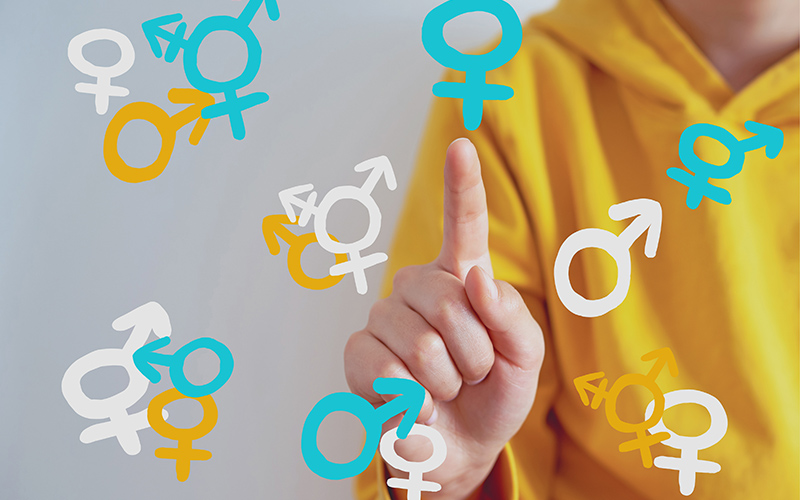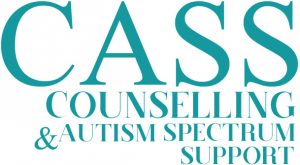Gender identity is how people feel about and describe their gender. Everyone expresses their gender in different ways, for example through how we act and dress. Whilst certain individuals happily identify with the sex that they were assigned to at birth, others do not. Some people identify as neither female nor male which is known as a “non-binary” identity and referred to by different terms, such as gender diverse.
Gender dysphoria (GD; formerly known as gender identity disorder and transsexualism) describes a sense of unease with or without distress felt by people because of a mismatch between their experienced gender identity and biological sex. This sense of dissatisfaction or discrepancy can be so intense that it leads to anxiety and depression with a very harmful impact on daily life. Gender nonconformity (GNC) relates to GD and describes when people’s expressed gender identity varies from cultural norms.
Some studies from the last decade suggested a link between Autism (ASD) and GNC/ GD and furthermore, that autistic people could be more likely than other people to experience gender dysphoria. However, more research and evidence is needed to demonstrate the reason(s) why this co-occurring may happen. Also, recent research suggests that the apparent link between Autism and gender dysphoria is not clear. Therefore, further development and testing of assessment tools and support for autistic people experiencing gender dysphoria is very much needed.
During a fascinating interview filmed for Network Autism at the Autism and Mental Health Conference (2015), Dr Wenn Lawson describes how GD may occur when particular hormones are released during a baby’s development in the womb. And more specifically that a split in these hormones results in dysphoria between the gender of the brain and physique. Dr Lawson is autistic and has worked with autistic people for over twenty years. In this interview, he expressed how GD in autism was only just starting to be understood. He also estimated that approx 20% of autistic people are living with gender dysphoria. Wenn highlights the possibility that the things that cause autism, genetics etc are linked to GD. He recommends that parents try to be very in tune with their children as early intervention for those living with GD and autism is paramount for mental illness reasons.
CASS offers support for autistic people. We are always patient with our clinics and proactively listen to how they are feeling. To find out more about our new approach to supporting neurodiversity click here.
References:
https://link.springer.com/article/10.1007/s10803-010-0935-9
https://pubmed.ncbi.nlm.nih.gov/26753812/
https://pubmed.ncbi.nlm.nih.gov/30392630/
https://www.tandfonline.com/doi/full/10.1080/15374416.2016.1228462
https://www.autism.org.uk/advice-and-guidance/what-is-autism/autism-and-gender-identity
https://www.verywellhealth.com/gender-dysphoria-and-autism-4134405
https://link.springer.com/article/10.1007/s10508-013-0154-5
https://www.verywellhealth.com/understanding-gender-dysphoria-4587339


